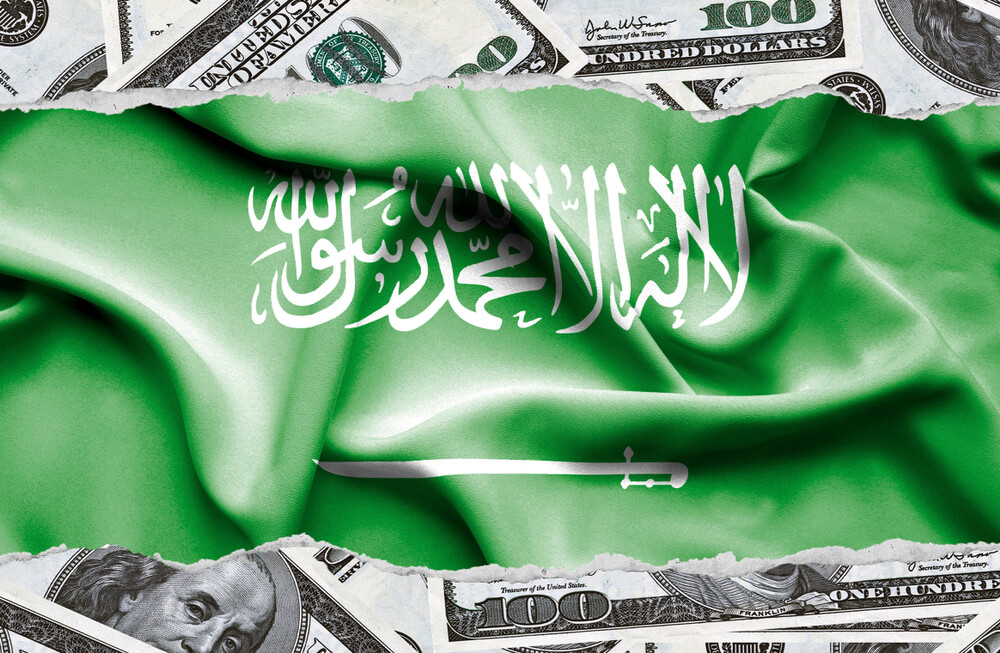International rating agency Standard & Poor’s believes that the development of capital markets in Saudi Arabia will play an important role in facilitating the realization of Vision 2030. It expects the issuance of foreign currencies in international markets and the growth of the local currency debt market to spur a significant expansion of the capital market for Saudi debt.
The Kingdom is taking important initiatives to diversify its economy and reduce its dependence on oil in line with the Vision 2030 program. The development of its financial sector is one of the core principles of this Vision 2030. It aims to advance the capital market and attract private investors and foreign institutions to finance some of the country’s major projects.

A strong and high-quality domestic debt market is key to developing and transforming the economy and could contribute to the financing needs arising from Vision 2030 with large projects, according to a new S&P report titled “Saudi Arabia’s Debt Market: Ready for Take Off.”
Government-related entities, large financial institutions and large corporations are likely to dominate initially, with low-credit quality companies following suit.
“In our view, the evolution of our ratings will be similar in some developed markets – where entities with higher credit quality reach the public debt market first, and entities with lower credit ranges – although this is likely to happen at a faster pace in the case of Saudi Arabia,” the report seen by Economy Middle East said.
Read: S&P predicts substantial expansion of Saudi’s debt capital market
Stock market initiatives pave the way for expansion
Over the past few years, the CMA and Tadawul (the Saudi Stock Exchange) have undertaken several initiatives to develop Saudi capital markets, by streamlining listings, investing heavily in market infrastructure, approving rules to facilitate foreign investors’ access to Saudi capital markets, implementing measures to enhance corporate governance practices and further improving transparency.
In 2019, Saudi equities were included in the MSCI Emerging Markets Index as well as related indices from FTSE Russell and S&P Dow Jones, increasing the global outlook for Saudi stocks.
The initial public offering of Saudi Arabian Oil Company (Saudi Aramco) in 2019 was a milestone, and since then there have been many other Saudi entities benefiting from the stock market.
As of June 15, 2023, the market capitalization of the Tadawul index exceeded $2.9 trillion, up from about $420 billion at the end of 2015.
“Given the sheer volume and long-term nature of the investments under Vision 2030, we do not believe that the banking sector alone will be able to meet financing needs. Instead, we expect Saudi companies to increase borrowing activities in capital markets with debt, gradually rebalancing the country’s financial system and developing a broader domestic capital market,” the report said.
Referring to the initiatives that have taken place to enhance the role of the debt market in Saudi, the CMA said that in 2020, the Capital Market Authority allowed non-resident foreign investors to invest directly in listed and unlisted debt instruments. In 2022, FTSE Russell began listing local currency sovereign sukuk issuances in Saudi Arabia in the FTSE Emerging Markets Government Bond Index. The CMA also announced that it has canceled its share in Sukuk and bond trading commissions at Tadawul as of May 2023 to encourage trading of debt instruments in the secondary market.
The issuance of foreign currency in international markets will play a vital role in injecting institutional funds into key projects.
“However, the domestic debt market will also be critical to meet the growing financing needs for traditional bonds and sukuk that arise from the vision,” she adds, expecting the Saudi authorities to implement several supporting initiatives to support the development of the local currency capital market.
In this context, it expects the Kingdom’s leading companies to play a leading role in developing the country’s local currency debt market and benefiting from it before issuers with medium and small capital.
For more on Saudi, click here.




